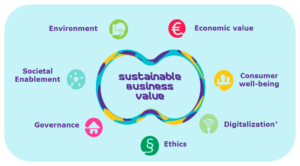Reality television has become a dominant force in the entertainment industry, offering a unique blend of entertainment, escapism, and insight into human behavior. From competition shows to docuseries, reality TV has captured audiences’ attention by showcasing unscripted and often dramatic real-life scenarios.
The Rise of Reality TV
Reality TV gained prominence in the early 2000s with shows like “Survivor” and “Big Brother.” These shows introduced the concept of real people competing for prizes or enduring challenges.
Entertainment Value and Escapism
Reality TV offers entertainment that allows viewers to escape from their own lives and immerse themselves in the lives of others. Shows like “Keeping Up with the Kardashians” and “The Bachelor” provide drama, intrigue, and relatable moments.
Voyeuristic Appeal and Personal Connection
Reality TV allows viewers to observe real people in unscripted situations, creating a sense of voyeurism. Audiences often feel a personal connection to the participants, making their journeys emotionally engaging.
Societal Reflections and Cultural Impact
Reality TV reflects societal trends, values, and attitudes. It highlights issues such as relationships, social dynamics, and personal growth, often sparking discussions and raising awareness.
Competition and Transformation
Competition-based reality shows like “Top Chef” and “Project Runway” highlight talent, skill, and the drive to succeed. Transformational shows like “The Biggest Loser” showcase personal growth and self-improvement.
Controversies and Ethical Considerations
Reality TV is not without its controversies, from concerns about exploitation and manipulation to questions about the authenticity of participants’ experiences.
Evolution of Reality TV Formats
Reality TV has evolved to include a wide range of formats, including dating shows, home improvement shows, and talent competitions.
Social Media and Fan Engagement
Social media has amplified the impact of reality TV, allowing viewers to connect with participants, share opinions, and participate in discussions.
The Future of Reality TV
As technology advances, reality TV is likely to continue evolving with interactive and immersive experiences, blurring the line between entertainment and reality.
Balancing Entertainment and Responsibility
While reality TV is meant for entertainment, it also holds a responsibility to portray participants ethically and contribute positively to cultural conversations.
In conclusion, reality TV occupies a unique space in the entertainment landscape, offering a mix of entertainment, escapism, and social reflection. It reflects the complexity of human behavior while providing viewers with a diverse array of experiences and stories.


























+ There are no comments
Add yours